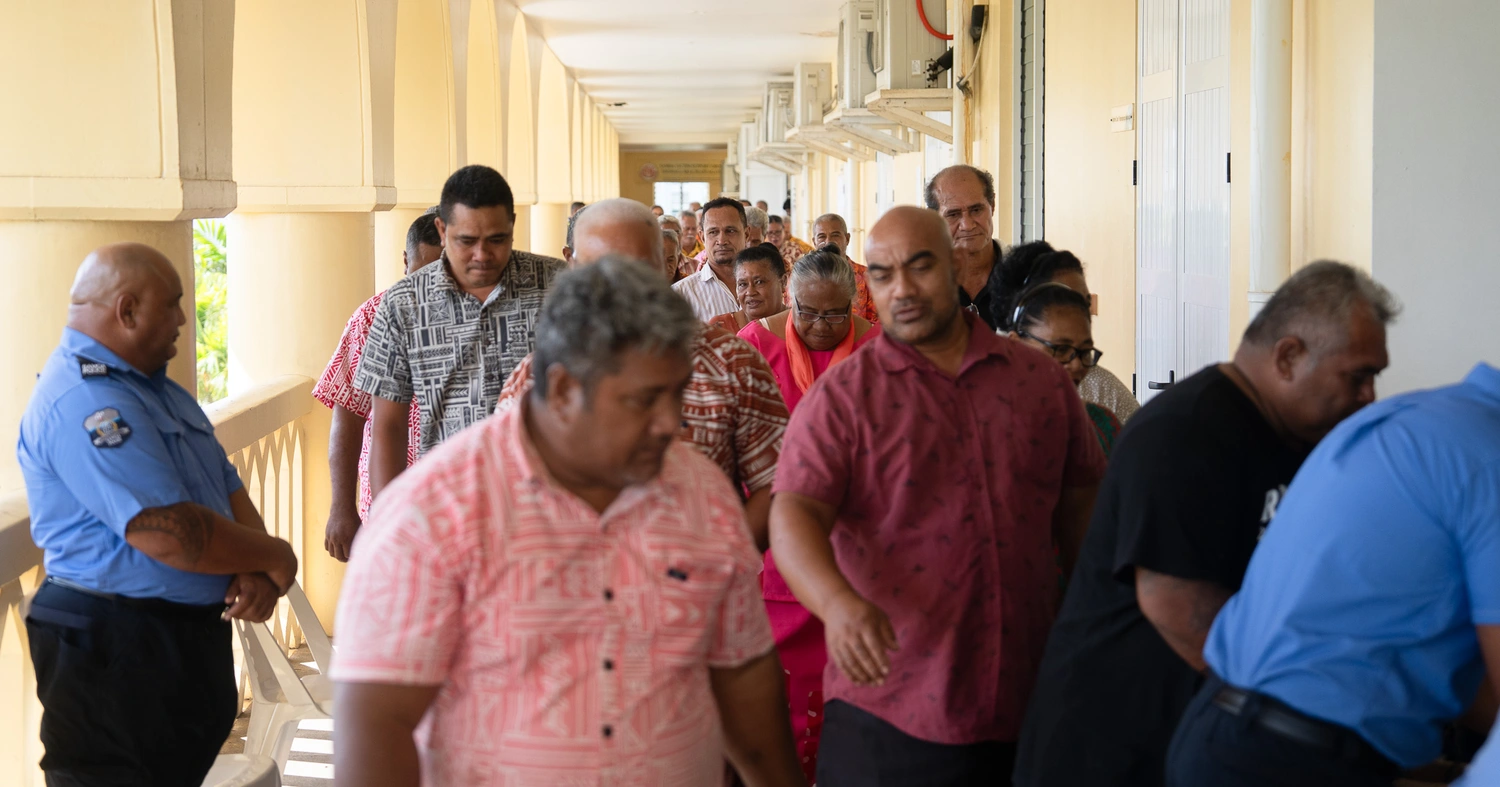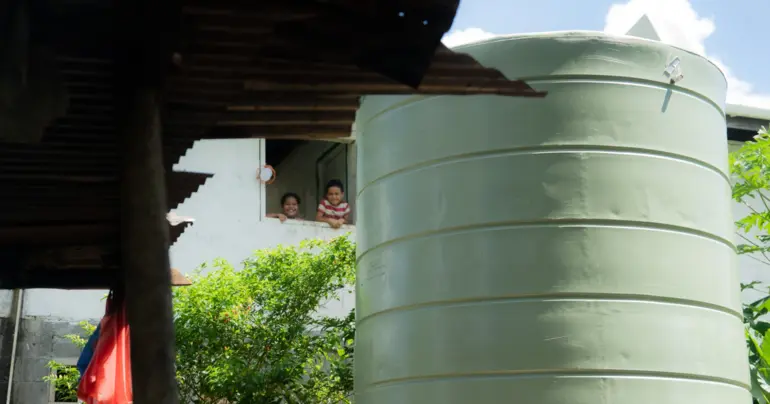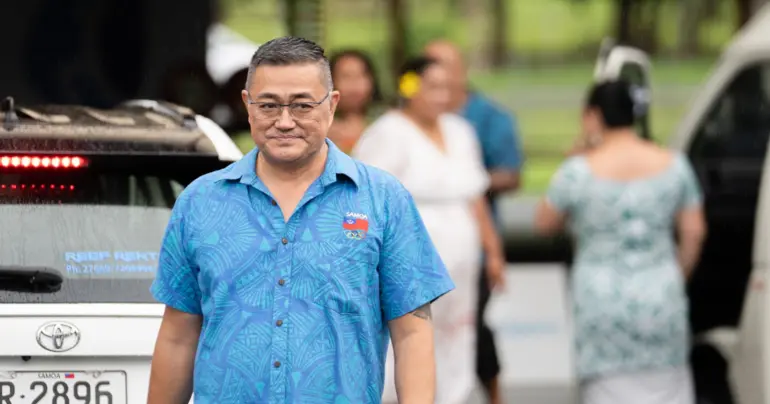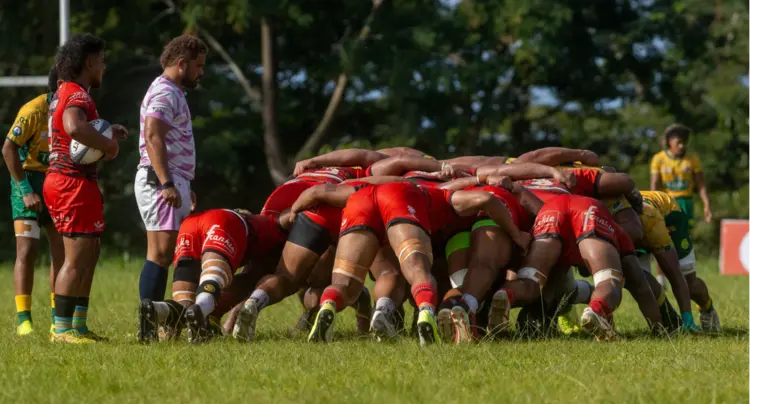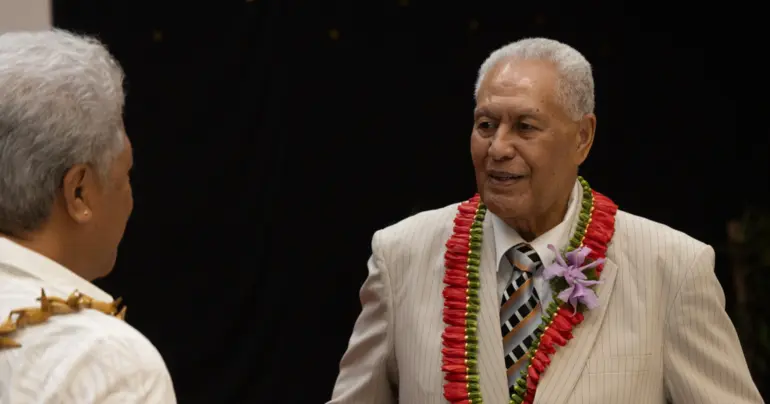Safata No. 1 petition decision reserved
 By Bethel Peato-Ale
•
24 October 2025, 7:10PM
By Bethel Peato-Ale
•
24 October 2025, 7:10PM
The Electoral Court has reserved its decision in the election petition challenging the victory of Safata No. 1 member of parliament Anapu Seve Te’i, following robust legal arguments over whether the constitutional right to silence applies to election petition proceedings.
The petition, filed by unsuccessful candidate Lea’ana Ronnie Posini, alleges electoral bribery and other corrupt practices by Anapu. Representing the respondent, counsel Mapusua Tanya Toailoa argued that Anapu was entitled to rely on the right to silence under Article 9 of Samoa’s Constitution, which protects individuals from being compelled to testify against themselves when facing criminal charges.
“These proceedings are of a quasi-criminal nature,” Mapusua told the court. “The allegations are serious and could, in another forum, form the basis of criminal charges. Therefore, the same constitutional protections should apply.”
Presiding Justice Vui Clarence Nelson, sitting alongside Justice Leiataualesa Daryl Clarke, challenged that argument, saying Article 9 is limited to criminal prosecutions. “You are absolutely correct when it comes to criminal charges,” he said. “But this is not a prosecution for bribery, it is an election petition. The consequence of being found guilty is the loss of a parliamentary seat, not imprisonment or a fine.”
Justice Vui pressed Mapusua to produce a legal precedent supporting the extension of the right to silence to election petitions. “What court has ever come to that conclusion?” he asked. Mapusua conceded, “Your Honour, I am not aware of any authority.”
“That’s because there is none,” Justice Vui replied, calling the submission “a pretty radical proposition.” He explained that the Electoral Act already empowers the court to issue indemnities protecting witnesses from self-incrimination, reinforcing the distinction between criminal and electoral proceedings.
Justice Leiataualesa added that no other common law jurisdictions around the world have ever recognised the right to silence in election petition cases. “If you are asking this court to make new law, you must support it with case authorities,” he said. “But don’t ask us to do so without any authority.”
Mapusua acknowledged the bench’s comments, saying, “I think I can’t take this submission any further, Your Honour.”
Justice Vui concluded by noting the bench would require time to deliberate on the submissions and evidence. “We are going to reserve our decision,” he said. “As you know, Justice Leiataualesa and I have another petition next week. We won’t be writing this decision until we deal with that petition.”
The ruling on Anapu’s case is expected sometime in November. Both parties were thanked for their submissions before the court adjourned.
 By Bethel Peato-Ale
•
24 October 2025, 7:10PM
By Bethel Peato-Ale
•
24 October 2025, 7:10PM




